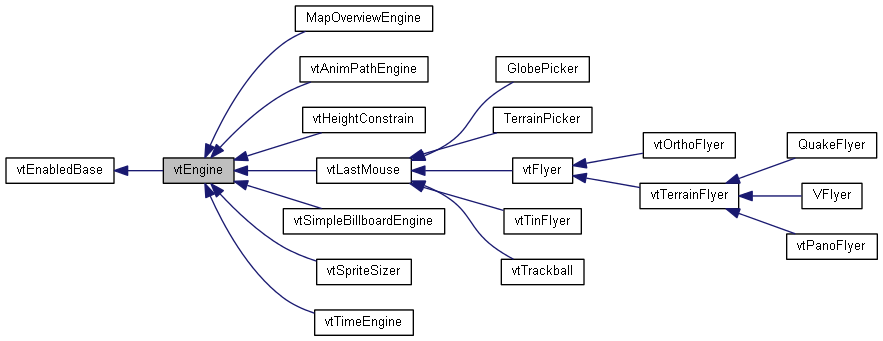|
| osg::Referenced * | GetTarget (uint which=0) |
| |
| void | AddTarget (osg::Referenced *ptr) |
| |
| void | RemoveTarget (osg::Referenced *ptr) |
| |
|
uint | NumTargets () |
| | Return the number of targets for this engine.
|
| |
|
virtual void | OnMouse (vtMouseEvent &event) |
| | Virtual handler, to catch mouse events, can be overridden by your engine class.
|
| |
|
virtual void | OnKey (int key, int flags) |
| | Virtual handler, to catch keyboard events, can be overridden by your engine class.
|
| |
|
virtual void | OnWindowSize (int width, int height) |
| | Virtual handler, to catch resize events, can be overridden by your engine class.
|
| |
| virtual void | Eval () |
| |
The vtEngine class represents an Engine, which is a convenient way to encapsulate an application behavior which occurs every frame. An Engine typically has a target, which is another object which it affects. The Engine's method Eval() is called each frame, at which point it can do whatever simulation or computation it desires, and then update its target.
- For example, you may have a node in your scene graph which represents a fish. You could then create a Engine class (e.g. FishEngine, subclass of vtEngine) which simulates the behavior of a fish. For each fish you create, you would also create a FishEngine and set the Engine's target to be the fish.

 1.8.10
1.8.10